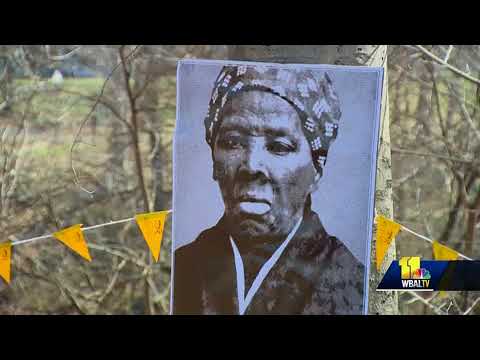BTR News (Baltimore) – More than 200 local residents and elected leaders gathered together last Saturday to rededicate a space in a Baltimore park, which had long honored two Confederate generals committed to white supremacy and slavery. The park space now honors famed abolitionist and Underground Railroad conductor Harriet Tubman who played a key role in freeing victims of slavery and in the war effort to defeat the short-lived Confederate States of America.
“We stand on the shoulders of this great woman,” said Ernestine Jones-Williams, 71, a Baltimore County resident and a descendant of Harriet Tubman who spoke on behalf of the family. “We are overwhelmed. Overwhelmed. Thank you, and God bless you.”
The mostly citizen-led efforts to remove anti-justice and pro-white supremacy monuments across the United States, the only nation that permits such displays that honor those that tried to destroy it, have been ramping up since 2015 after white supremacist Dylann Roof, a Confederate sympathizer, committed an act of terrorism by killing nine people he had just finished Bible study with and began his cold-blooded acts while the group was praying. It was because of another citizen petition to remove a Confederate statue from a Charlottesville public park in Virginia that led to a white supremacists gathering which was met by anti-racist protesters, that lead another white supremacist to run over several counter-protestors resulting in injury and the killing of Heather Heyer.
“Since the removal of the Lee-Jackson statue, this park has become a gathering place for city residents of all backgrounds to meet, talk and enjoy the location as a space that symbolizes hope and positive change,” said Ciara Harris, a Baltimore Department of Recreation and Parks official. “Harriet Tubman Grove will provide the city an opportunity to correct historical injustice to a Maryland native. Our city is properly recognizing an African-American hero.”
City Councilwoman Mary Pat Clarke called Tubman, who was born a victim of slavery on Maryland’s Eastern Shore but went on to lead many other enslaved people to freedom along the Underground Railroad, a “heroine and beacon for all ages.”
Marvin “Doc” Cheatham, a longtime civil rights leader who has been working to get Tubman recognized in more official ways across the city for years, thanked the community for its work in renaming the grove.
“You did what needed to be done to say, ‘Yes, we need to move on,’ ” he said
